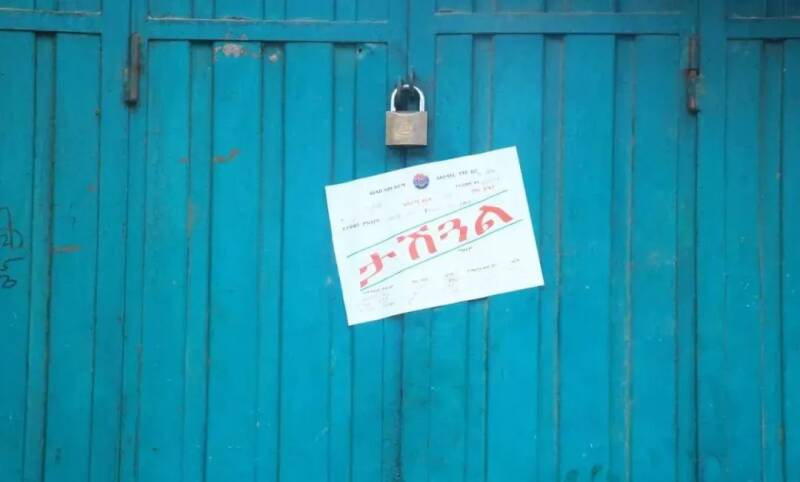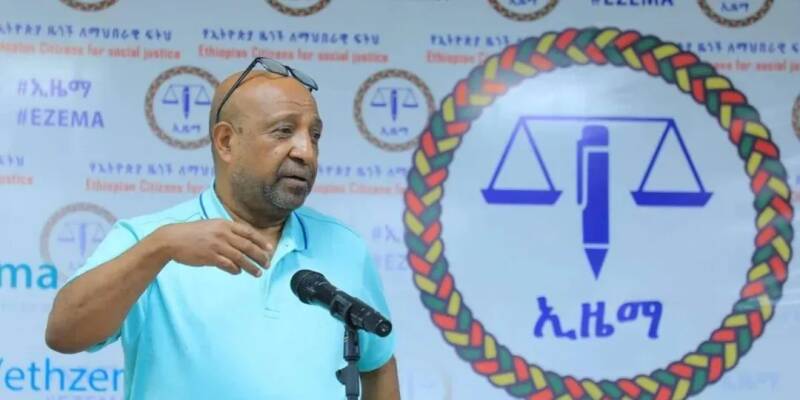Ethiopia's exchange rate continues to fall! Bill fell 3 times in 2 days!
According to Ethiopian media reports, the Commercial Bank of Ethiopia updated its exchange rate on August 2, currently trading at 83.94 Bill to the dollar. This is the third time that the exchange rate has fallen since the new foreign exchange policy was announced on July 31. The rate of change in the exchange rate has made locals miserable, saying that even Ethiopia's traditional staple, the Angela, can hardly afford to go on like this.
In addition, on 1 August, the Trade Bureau of the city of Addis Ababa reportedly sanctioned 387 merchants, claiming that they had unreasonably raised prices by taking advantage of macroeconomic reforms, including the relaxation of foreign exchange controls and devaluation. The director of the bureau accused the merchants of maliciously raising prices and did not issue a clear price list. And the director warned businesses that stronger measures would be taken if unreasonable or anachronistic price increases persist.
Although the Trade Bureau of the city of Addis Ababa did not elaborate on the sanctions against merchants, it indicated that violation of the pricing guidelines could result in the revocation of licenses and believed that the enforcement was aimed at protecting the interests of consumers during economic turmoil.

However, the Ethiopian government's foreign exchange government this time has caused many dissatisfaction, including the Ethiopian opposition party, the Ethiopian Civil Society Justice Party. The Justice Party criticized the Ethiopian government's "outdated" foreign exchange reforms and warned Ethiopian citizens that they might face economic difficulties.
It also said that the solution of letting the market determine the exchange rate is dangerous for Ethiopian countries, all because of Ethiopia's limited production sector and heavy reliance on imports. By any measure, it is anachronistic and the Government of Ethiopia needs to bear full responsibility for the economic, social and political consequences of the new monetary policy.

It is understood that earlier on July 31, Ethiopia announced a major revision of its foreign exchange system and carried out a series of transformation measures. the Ethiopian government believes that foreign exchange reform is essential to resolving serious foreign exchange shortages, improving export competitiveness, attracting foreign direct investment and complementing a number of other macroeconomic reforms.
However, shortly after the release of the policy, the exchange rate of the Ethiopian currency, the Bill, fell and has fallen to 83.94 to the dollar. This has also led to dissatisfaction among local residents in Ethiopia. All due to the devaluation of the domestic currency, the cost of imported goods has increased, thus causing the previously high local prices to rise again.
Ethiopia mainly imports cars, oil, edible oil and chemical fertilizers, but at the same time, Ethiopia's economy mainly depends on agriculture, and farmers and herdsmen account for more than 85% of the total population, so there is a great demand for chemical fertilizers and so on. The increase in the cost of chemical fertilizer also increases the cost of planting.
Although the Ethiopian government said that it would minimize the price impact of basic imports such as fuel, fertilizers, medicines and edible oils through temporary subsidies and price changes. However, at present, the prices of all kinds of consumer goods in Ethiopia have risen sharply, with some commodities increasing by 50% and 100%, putting great pressure on the local consumer group, and the cost of growing crops such as coffee will also increase.
In addition, the agricultural industry is very dependent on weather conditions, in the event of bad weather, it will lead to a reduction in production. Just on July 29, a landslide occurred in the central Sidama district of Sidama, an important coffee producing region in Ethiopia, killing six people and causing economic losses. And the country has been suffering from heavy rain recently, the Ethiopian National disaster risk Management Committee (NDRMC) has issued a risk warning to the Sidama region.
At the same time, Ethiopia relies heavily on maritime shipping for the import and export of goods, but the current situation in the Red Sea remains grim, with seven vessels still attacked in July and the number of shipping vessels at the port of Djibouti decreased, which has greatly increased shipping costs. as a result, the export situation in Ethiopia is not optimistic, and domestic prices remain high.
At present, local coffee and other traders will accelerate the sale of their stocks, all because of the devaluation of the local currency, and sell through the international market to earn foreign exchange. And the devaluation of Ethiopian currency Bill helps to improve the international competitiveness of Ethiopian coffee and is conducive to exports in the short term.
However, some people in the industry believe that the current policy is indeed conducive to coffee export and accelerates coffee sales and exports, but with the unstable climate and frequent conflicts within the country, coffee stocks will be greatly reduced in the future, and the problem of insufficient inventory may arise. In addition, the government will provide temporary subsidies during the current economic reform, but not for long. Costs will rise in the future, and the prices of crops such as coffee in the new season will rise, but at the same time, higher prices will reduce the number of international buyers buying products from the country. That is, the current policy can indeed benefit a number of foreign exchange-generating sectors such as coffee, sesame, beans and flowers in the short term, but it will not be conducive to development in the long run.
Important Notice :
前街咖啡 FrontStreet Coffee has moved to new addredd:
FrontStreet Coffee Address: 315,Donghua East Road,GuangZhou
Tel:020 38364473
- Prev

The lost property of passers-by was thrown away by the coffee shop! Netizen: The clerk is not obligated to keep it
▲ Click to pay attention| Daily Boutique Coffee Culture Magazine Coffee Workshop Recently, a netizen posted that he accidentally lost a bag while taking photos and checking in at a store in %Arabica located in the mall. The blogger said that he and his friends were taking photos at the tables and chairs at the door that day, and left the bag he was carrying with him in the store when he left.
- Next

Introduction to Bolivian coffee producing areas in South America
South America is rich in natural resources. The Andes Mountains run through almost the entire western part of South America and are one of the continents with many volcanoes in the world. The continent's climate is warm and humid, mainly tropical, with abundant rainfall, mountains and volcanoes. The natural conditions are very suitable for coffee and other agricultural cultivation. There are many coffee-producing countries on the continent, including
Related
- What grade does Jamaica Blue Mountain No. 1 coffee belong to and how to drink it better? What is the highest grade of Blue Mountain coffee for coffee aristocrats?
- What are the flavor characteristics of the world-famous coffee Blue Mountain No. 1 Golden Mantelin? What are the characteristics of deep-roasted bitter coffee?
- Can I make coffee a second time in an Italian hand-brewed mocha pot? Why can't coffee be brewed several times like tea leaves?
- Hand-brewed coffee flows with a knife and a tornado. How to brew it? What is the proportion of grinding water and water temperature divided into?
- What is the difference between Indonesian Sumatra Mantinin coffee and gold Mantinin? How to distinguish between real and fake golden Mantelin coffee?
- What does bypass mean in coffee? Why can hand-brewed coffee and water make it better?
- Unexpected! Ruixing Telunsu lattes use a smoothie machine to foam milk?!
- % Arabia's first store in Henan opens into the village?! Netizen: Thought it was P's
- Does an authentic standard mocha coffee recipe use chocolate sauce or powder? Mocha Latte/Dirty Coffee/Salty Mocha Coffee Recipe Share!
- What is the difference between Vietnam egg coffee and Norway egg coffee? Hand-brewed single product coffee filter paper filter cloth filter flat solution!

